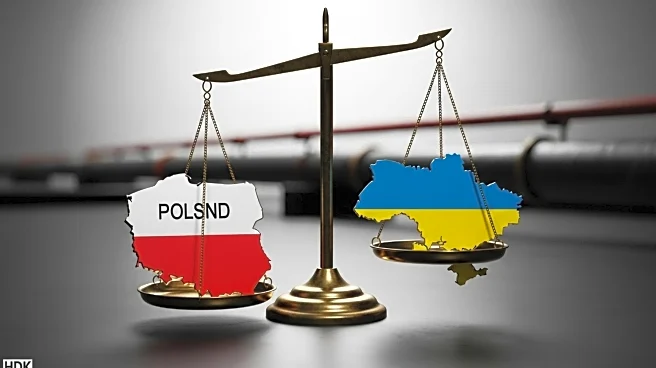What is the story about?
What's Happening?
The Polish Prime Minister has stated that it is not in Poland's interest to extradite a Ukrainian man wanted by Germany for suspected involvement in explosions that damaged the Nord Stream gas pipelines. This statement comes amid ongoing discussions about Poland's role in regional security and its relationship with Germany. Additionally, the Polish Monetary Policy Council is expected to announce its decision on interest rates, with most analysts predicting no change. Meanwhile, the Polish parliament is working on a bill to protect Poles fighting against Russia in the Ukrainian army from legal repercussions.
Why It's Important?
Poland's refusal to extradite the Ukrainian suspect highlights the complex geopolitical dynamics in Eastern Europe, particularly concerning energy security and international relations. The Nord Stream pipeline explosions have significant implications for European energy supplies and political alliances. Poland's stance may affect its diplomatic relations with Germany and other EU countries. Furthermore, the interest rate decision and legislative actions regarding Polish fighters in Ukraine reflect Poland's domestic priorities and its approach to regional conflicts.
What's Next?
The Polish government's decision on the extradition case could lead to diplomatic discussions with Germany and other EU members. The outcome may influence Poland's role in European security and energy policies. Additionally, the interest rate announcement and the progress of the abolition bill will be closely monitored by economic stakeholders and political analysts, as they could impact Poland's economic stability and its position in regional conflicts.

















